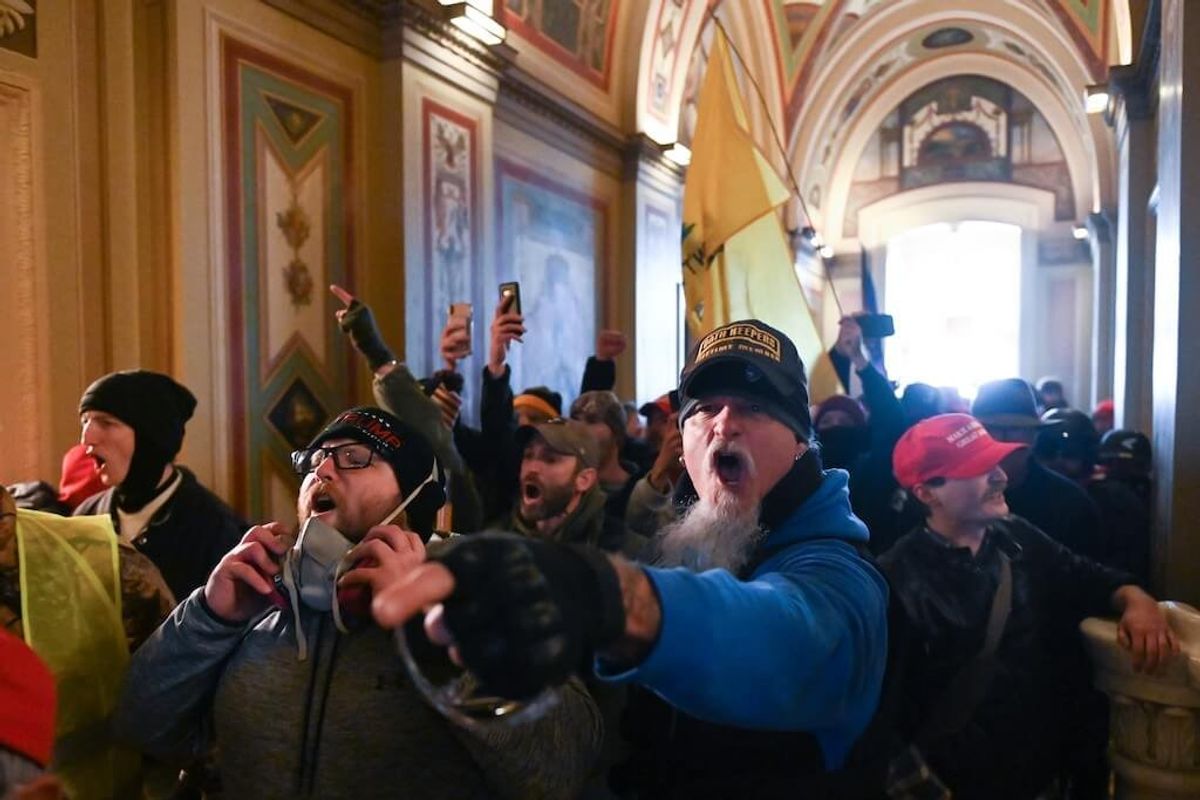
US Opens Criminal Probe Into Assault on Capitol
U.S. law enforcement authorities have opened a criminal investigation into Wednesday's attack on the U.S. Capitol by pro-Trump rioters, enlisting hundreds of investigators to identify and arrest the perpetrators, officials announced Thursday.
Acting U.S. Attorney for the District of Columbia Michael Sherwin said 15 people have been charged in federal court in Washington in connection with the rioting, while 40 others were charged in D.C. superior court in the lead-up to the rioting, most of them for unlawful entry onto Capitol grounds, Sherwin said.
The federal charges include theft of government property and firearms violations. One man was arrested near the Capitol on charges of carrying a semi-automatic assault weapon and 11 Molotov cocktails that were "ready to go," Sherwin said.
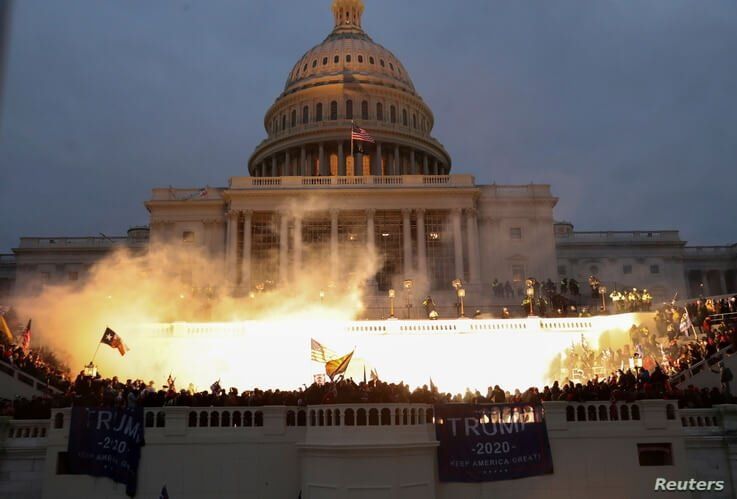
The attack left four people dead and dozens wounded.
Sherwin said the arrests mark the beginning of a potentially monthslong effort to bring the perpetrators to justice.
"Make no mistake about it: This was obviously a very dangerous situation," Sherwin said. "We're aggressively trying to address these cases as soon as possible, and make no mistake about it, even though we just teed up 15 cases, I think that's a good start, but it's in no regard the end."
The large number of charges in 36 hours, with more to come, underscore the aggressiveness with which prosecutors are handling the investigation.
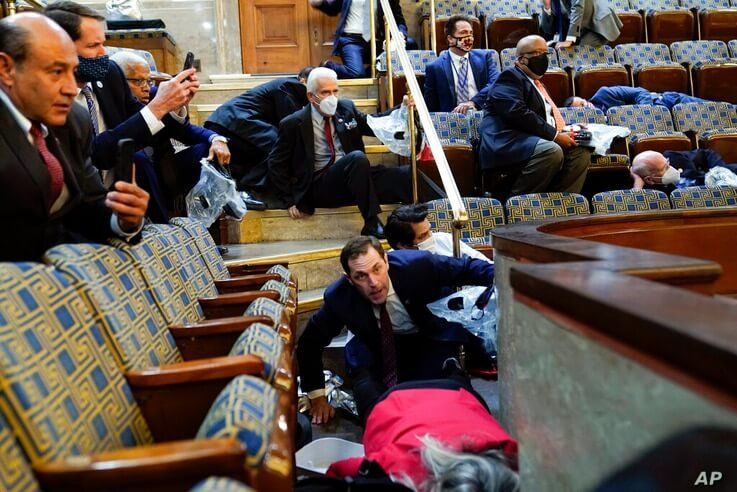
Sherwin cautioned that because all but a handful of the hundreds of rioters who stormed the Capitol were allowed by Capitol Police to leave, the effort to identify and arrest the perpetrators could take months, perhaps all year.
He said hundreds of investigators are combing surveillance videos and social media footage to identify the perpetrators.
"We'll aggressively charge these cases," Sherwin said.
Acting Attorney General Jeffrey Rosen said the Justice Department "is committed to ensuring that those responsible for this attack on our government and the rule of law face the full consequences of their actions under the law."
"Our criminal prosecutors have been working throughout the night with special agents and investigators from the U.S. Capitol Police, FBI, ATF, Metropolitan Police Department and the public to gather the evidence, identify perpetrators and charge federal crimes where warranted," Rosen said in a statement Thursday.
FBI Director Christopher Wray said his bureau has "deployed our full investigative resources" to charge the perpetrators.
"Make no mistake: With our partners, we will hold accountable those who participated in yesterday's siege of the Capitol," Wray said in a statement.
The brazen assault, described by Rosen as "an intolerable attack on a fundamental institution of our democracy," began with hundreds of supporters of President Donald Trump storming the Capitol while members of Congress were meeting in a joint session to certify President-elect Joe Biden's win in the November 3 election.
In a video posted Thursday night on Twitter, Trump addressed the "heinous attack on the United States Capitol," saying he was "outraged by the violence, lawlessness and mayhem."
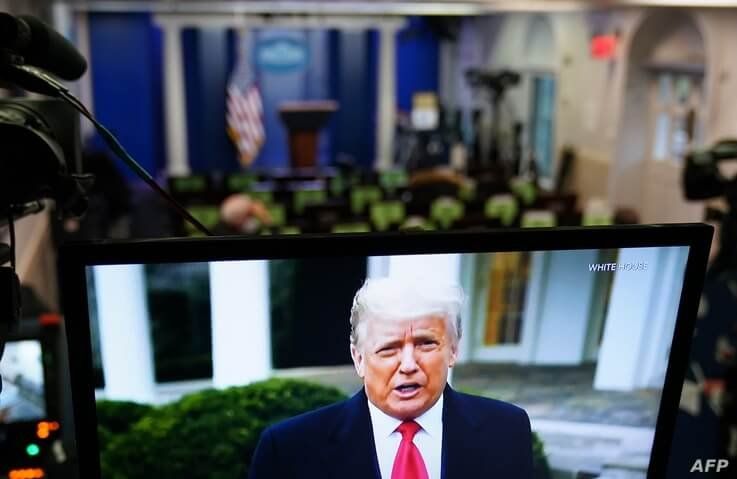
Trump has been widely condemned for inciting the violence by imploring supporters angry over his electoral loss to march on the Capitol. In a rare rebuke, former Attorney General William Barr, a staunch Trump ally while in office, said in a statement to the Associated Press that the president's conduct "was a betrayal to his office and supporters."
Asked if federal prosecutors were looking into Trump's role in the episode, Sherwin said, "We're looking at all actors here and anyone that had a role and the evidence fits the elements of a crime, they're going to be charged."
Role of police
The rioting ended as officers from more than 18 law enforcement agencies and the National Guard descended on the city. But a key question about the incident remained largely unanswered: Why were police forces guarding the Capitol not able to stop the rioters from entering the building? Law enforcement officials said while they were prepared for a massive protest, they were taken off guard by what transpired.
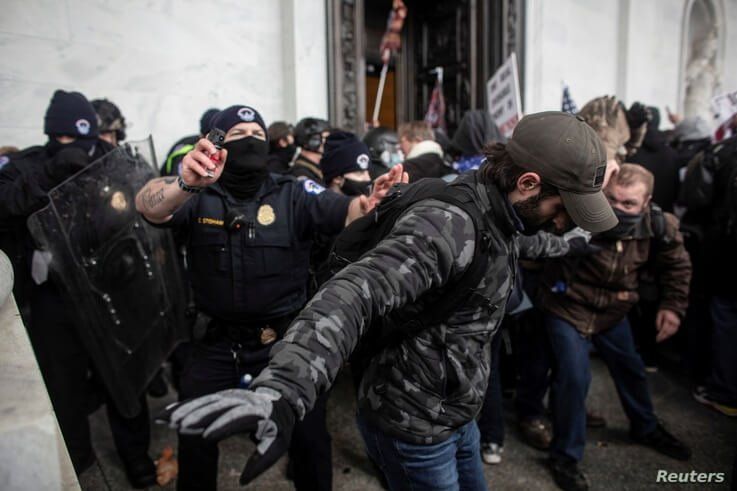
"The (United States Capitol Police) had a robust plan established to address anticipated First Amendment activities. But make no mistake — these mass riots were not First Amendment activities; they were criminal riotous behavior," Chief of Police Steven Sund said in a statement Thursday.
Sund defended his officers in a statement, saying "thousands of individuals" were involved "in violent riotous actions," attacking law enforcement officers with metal pipes, chemical irritants and other weapons. More than 50 Capitol police officers and Washington police officers were injured, with several taken to the hospital.
Capitol Police have also faced questions about their failure to detain people even as they were smashing windows, ransacking offices, and stealing government documents and materials.
A spokesman later said Sund is stepping down.
Sherwin stopped short of second-guessing the Capitol Police but said their failure has made it more difficult for federal investigators to track down and arrest the perpetrators.
Many left behind incriminating evidence in the form of videos and photographs posted on social media. One QAnon supporter was photographed in the Senate chamber. Another Trump supporter had his photograph taken in Speaker Nancy Pelosi's office.
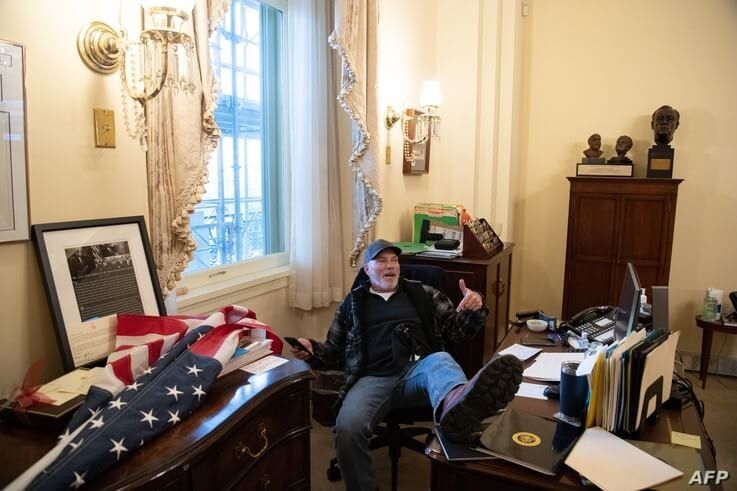
Law enforcement officials said they're combing surveillance videos and social media images to identify perpetrators. The FBI urged the public to share "tips and digital media depicting rioting or violence."
Jordan Strauss, a former federal prosecutor and now a managing director with Kroll, a risk management consultancy, said the videos and photographs offer a "plethora of evidence" that prosecutors can use to bring charges.
"A lot of people livestreamed their crimes while they were committing them," Strauss said.
Potential charges
The rioters could face several federal charges, from destruction of property to threatening members of Congress and sedition, he said. Sherwin said no charges, including sedition, are off the table.
Sedition is the act of opposing government authority by force. Barr raised the prospects of bringing sedition charges against anti-police protesters in a memo to federal prosecutors last summer.
Strauss said prosecutors will likely opt for "cleaner" charges that don't "risk infringing on First Amendment issues or allowing for an individual to claim that there's some sort of political prosecution."
Joel Hirschhorn, a criminal defense attorney, said arresting and charging every rioter is going to be virtually impossible.
"I think anyone who was inside the Capitol building is at risk because that was a trespass on government property," Hirschhorn said. "Will they be able to prosecute all of them? No, that's an impossibility."
 Cabinet Secretaries Chao, DeVos Resign, Citing Trump-Fueled Violence on Capitol HillNext PostUS Capitol Police Overrun by Mob After Declining Help
Cabinet Secretaries Chao, DeVos Resign, Citing Trump-Fueled Violence on Capitol HillNext PostUS Capitol Police Overrun by Mob After Declining Help







